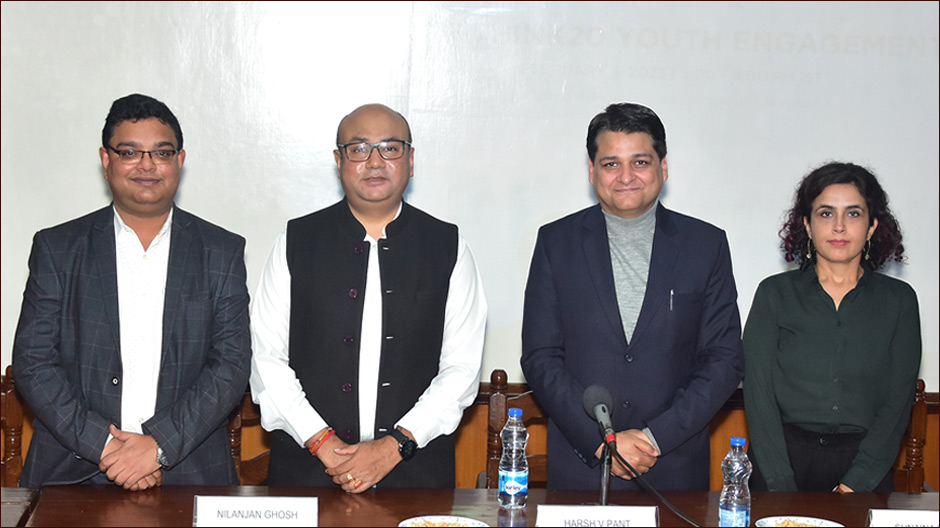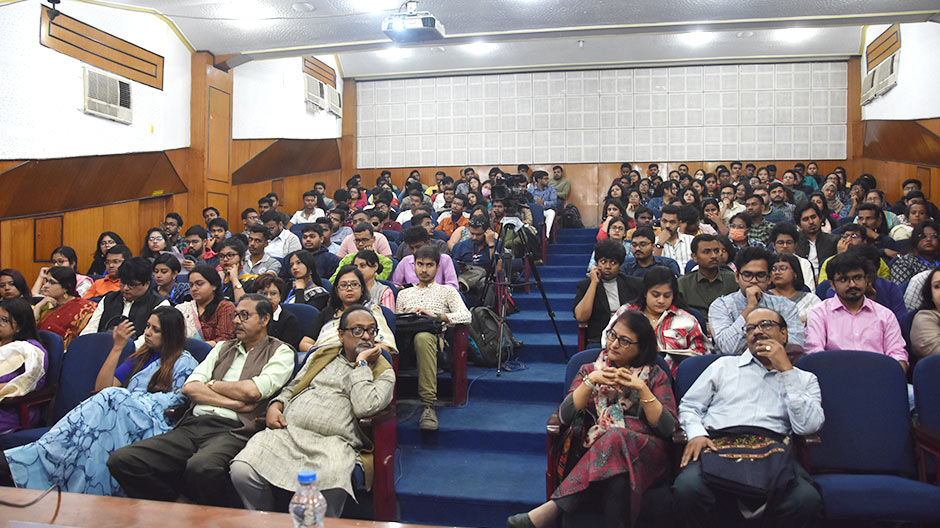In line with one of the seven thematic task forces that constitute the T20: ‘Towards Reformed Multilateralism: Transforming Global Institutions and Frameworks’, the Observer Research Foundation (ORF) Kolkata, in collaboration with Jadavpur University, hosted a T20 Youth Engagement side event on the theme “Geopolitics of Multilateralism”.
The Think 20 (T20) is one of the nine official engagement groups of the Group of Twenty (G20)—the premier intergovernmental forum for international cooperation. By bringing together think tanks, academia, and high-level experts, T20 serves as an ‘idea bank’ for G20 and provides analytical depth to policy issues and concerns addressed in G20 by holding discussions and deliberation.
The event primarily focused on acquainting the youth with the workings of the G20 as well as the reach, impact, and significance of the T20 platform. The event held a discussion on geopolitical concerns and delved into the geoeconomic domain of India’s foreign policy as well. In his welcome address, Professor Imankalyan Lahiri, Head, Department of International Relations, Jadavpur University remarked on the theme of India’s G20 Presidency—“Vasudhaiva Kutumbakam” or “One Earth, One Family, One Future” and how the endorsement of this pertinent concept of Vedanta affirms the value of “oneness” in this global platform as well as reflects the very essence of India, i.e. the unity in diversity.
The panel discussion commenced with a presentation by Sunaina Kumar, Executive Director at Think20 India Secretariat, briefly introducing the T20. She delivered an overview of the T20 engagement group of G20 for India’s presidency and reinforced the prioritisation of geographical diversity in its representation. She spoke about the functionalities of this body and touched upon the big ideas and critical issues like macroeconomics, state and livelihood, digitisation, clean energy, green transition, and Sustainable Development Goals (SDG) amongst others that G20 is committed to addressing. She mentioned some of the new innovations that the T20 Secretariat in India has launched to engage with the youth in ways of posting ideas at the portal IDEAS@T20 along with inviting contributions for policy briefs and commentaries.
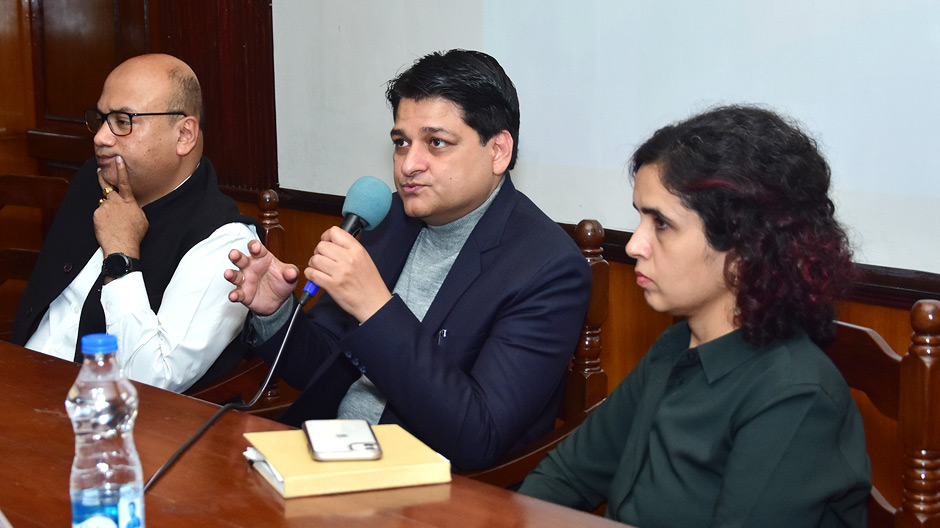
Professor Harsh V. Pant, Vice President, Strategic Studies and Foreign Policy, ORF, New Delhi, in his address highlighted that despite there being a system of rotating G20 Presidency, the enthusiasm regarding India’s presidency of G20 this year is reasonable. He suggested a dual framework to look at it: First, from an Indian foreign policy perspective and second, from the prism of the global multilateral order. As a major priority, he emphasises on how India could constructively utilise this global platform to project innovative ideas and demonstrate abled leadership in shaping the discourse of global politics and governance in consonance with Indian foreign policy aspirations. The second prism to look at this matter is multilateralism. He states that the global multilateral order is in a state of churning at the moment, and thus the capability, efficacy, and coherent approach of the G20 to contribute to framing a new global multilateral order will need to be closely analysed. Professor Pant pointed out that one of the consequences of the weakening of the global multilateral order is the rise of minilaterals. Countries are striving for alternative arrangements, forming ad-hoc coalitions and constructing a new institutional architecture of the geopolitics of multilateralism today. The geopolitical contestation now has a profound impact on the multilateral global order. India’s G20 Presidency in this context is crucial, as weaker, marginalised countries have the expectation of being represented by India in this global platform.
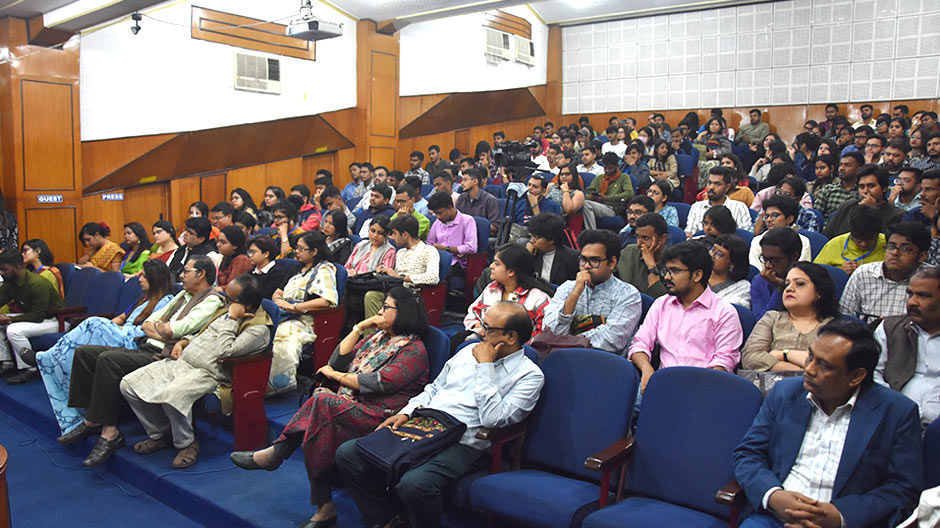
Dr Nilanjan Ghosh, Director, T20 Secretariat, Centre for New Economic Diplomacy & ORF Kolkata, drew upon Regional Trade Agreement (RTA), Free Trade Agreement (FTA) and India’s growth story. By briefly explaining RTA and FTA, Dr Ghosh elaborated on the various issues and concerns that India faced in Regional Comprehensive Economic Partnership (RCEP) and which eventually led to India’s withdrawal from the negotiation in 2019. India’s departure from RCEP was explained by highlighting significant concerns India faced like increasing trade deficit from China, adverse balance of trade with most of the RCEP members and India’s prospects among all the RCEP nations in terms of business competitiveness. In this address, Dr Ghosh emphasised on India’s endeavour to seek alternative geoeconomic opportunities such as new FTAs with friendly nations like India-UAE CEPA, India-Australia CECA, or the economic initiative launched by the US i.e., Indo Pacific Economic Forum and how these have provided significant economic as well as geostrategic opportunities. In his concluding remarks, Dr Ghosh states that even in the backdrop of global economic gloom, India has the highest growth rate because of its massive pool of human capital and continued investment in physical infrastructure. Thus, India can emerge as a success story even amidst the dismal global economic backdrop with the Indian diplomacy having a very significant role to play in leveraging its potential.
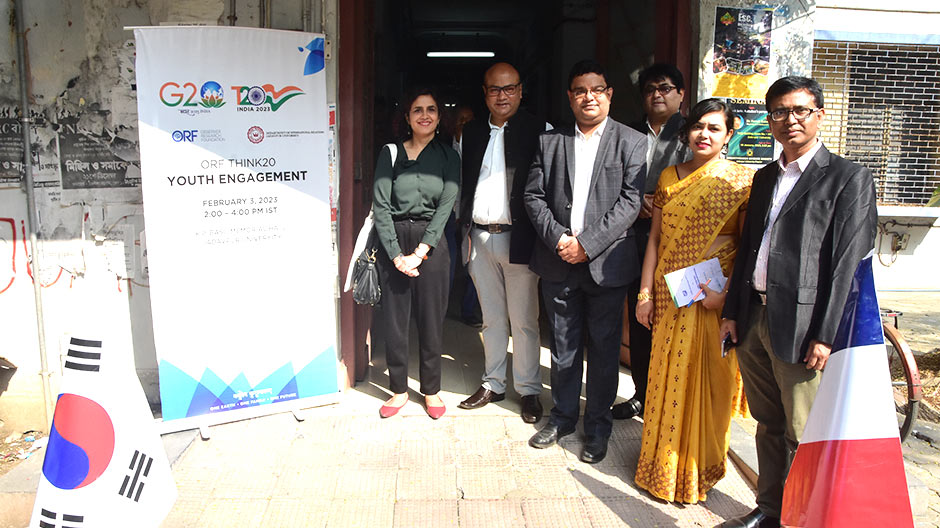
The panel discussion was followed by four sets of presentations from students of Jadavpur University on the topics ‘Analysing the Role of G20, as an Effective Platform in Enhancing Multilateralism’, ‘India’s Growth Story: A Growing Vision for G20’, ‘Non-security Threats along India’s Coastal Borders, Political Economy of Climate Change and Climatic Refugees: A Brief Assessment’ and ‘The Post-pandemic Health Security and G20’. The deliberations were concluded with an engaging interactive session with students.
This report is compiled by Ambar Kumar Ghosh, Junior Fellow, ORF Kolkata


